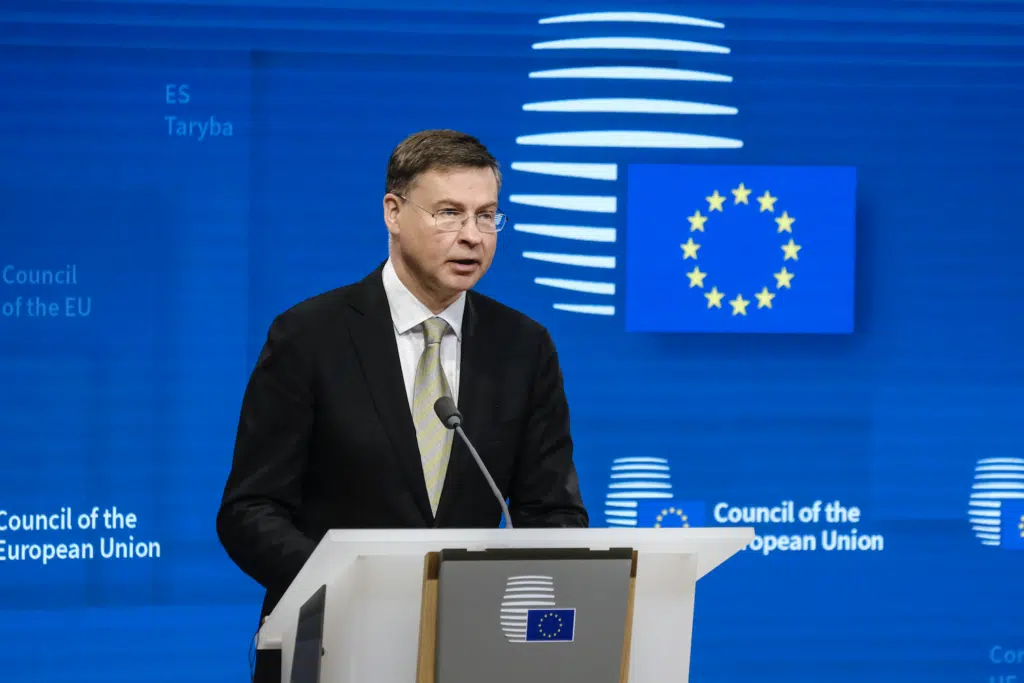Brussels – On sanctions on Russia, “we could have done more, but national contexts played a role.” Valdis Dombrovskis is not happy. The Economy Commissioner knows that fifteen packages of restrictive measures are not small in numbers and scope, but despite this, he is not satisfied. “For sanctions, you need unanimity, ” which is not always achieved, he explains to the World Economic Forum audience. The perhaps emblematic example is liquefied natural gas (LNG). “Russian LNG imports are increasing,” Dombrovskis acknowledges. “There are channels to increase our pressure,” and thus sanctions, were it not for the resistance of some governments.
It is not surprising, however, considering the challenge posed by energy security for the Twenty-Seven bloc. Renewables are yet to be developed and unable to meet the needs, and Europe has never had traditional sources. In the face of the ban on natural gas, oil, and coal, we keep our hands free on liquefied gas. Since the beginning of the Russian-Ukrainian war, Russian LNG purchases have never declined: 15.21 million tons in 2022, 15.18 million tons in 2023, and 16.65 million tons at the end of 2024—valuable purchases, especially for Belgium, France, and Spain. “Russia’s main source of revenue is energy exports,” Dombrovskis reminds. Almost three years of conflict have not changed the situation.

The year 2025 must, therefore, be the year in which the European Union will have to choose whether or not to go all the way in its choice of defending Ukraine to the hilt in its defence against the Russian military machine, which European energy purchases finance. On the one hand, there are geo-strategic reasons: eliminating Russian LNG in favour of more U.S. purchases could help untether from Moscow and befriend U.S. President Donald Trump, who is threatening to reconsider trans-Atlantic relations. On the other hand, there are multi-year contracts whose termination could lead to legal disputes and penalties to be paid.
Something seems to be moving, however. Ten member states out of 27 (Denmark, Estonia, Finland, Ireland, Latvia, Lithuania, Poland, the Czech Republic, Romania, and Sweden) press on the other partners. They are calling for eliminating any loopholes in EU sanctions, explicitly calling to end Russian LNG purchases. It remains to convince more than half of the EU, which could have done more and better.
English version by the Translation Service of Withub
![Il commissario per l'Economia, Valdis Dombrovskis [Davos, 22 gennaio 2025]](https://www.eunews.it/wp-content/uploads/2025/01/dombrovskis-250122-350x250.png)




